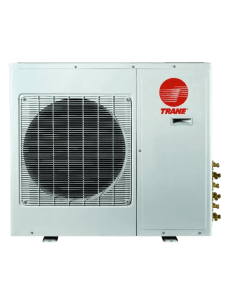Introduction
When it comes to keeping our homes comfortable, especially in the sweltering heat of summer, air conditioning systems play a pivotal role. But have you ever stopped to think about the unsung heroes behind this cooling magic? That's right! We're talking about refrigerants. These substances are essential for the operation of your air conditioning system, yet many homeowners remain blissfully unaware of their significance. In this article, we aim to demystify Understanding Refrigerants and Their Role in Your AC System while empowering you with knowledge that could save you from costly repairs and ensure optimal performance.
So, let’s dive into the world of refrigerants and discover why they matter so much!

What Are Refrigerants?
Refrigerants are fluids with low boiling points that absorb heat from the environment inside your home and release it outside. Essentially, they are what make your air conditioning system work by cycling between liquid and gas states during the refrigeration process.
Why Are Refrigerants Important?
The primary function of refrigerants is to transfer heat effectively. Without them, your AC system would simply blow hot air around the home rather than cool it down. So when you're searching for AC repair in San Diego, it's crucial to consider whether refrigerant issues may be at play.
Types of Refrigerants Used in AC Systems
There are several types of refrigerants used in air conditioning systems today:
R-22 (Freon): Once widely used, R-22 has been phased out due to its ozone-depleting properties. R-410A (Puron): The alternative to R-22, this refrigerant is more environmentally friendly and efficient. R-32: A newer option that has lower global warming potential compared to R-410A. Natural Refrigerants: Substances like ammonia or carbon dioxide that are gaining popularity due to their eco-friendliness.How Do Refrigerants Work?
Refrigerants work through a cycle of evaporation and condensation:
Evaporation: The refrigerant absorbs heat from your home as it evaporates inside the evaporator coil. Compression: The compressor then compresses this gas, raising its temperature. Condensation: Afterward, it moves to the condenser coil where it releases heat to the outside air as it condenses back into a liquid. Expansion: Finally, an expansion valve allows the high-pressure liquid refrigerant to expand into a low-pressure gas before entering the evaporator again.In summary, refrigerants serve as vital components that facilitate this cycle and keep your home comfortable.
Understanding Refrigerants and Their Role in Your AC System
It’s easy to overlook how integral these substances are until something goes wrong. An insufficient amount of refrigerant can lead to a host of issues including reduced cooling efficiency or even system failure! Regular maintenance checks by an experienced HVAC contractor in San Diego can help catch these problems early on.
Signs You Might Have a Refrigerant Leak
Insufficient Cooling Hissing or Bubbling Sounds Ice Formation on Coils Higher Energy BillsIf you notice any of these signs, don’t hesitate! Call upon the best San Diego HVAC company like Air Plus Heating & Cooling for effective solutions.
Regulations Around Refrigerants
Over the years, regulations have tightened around the use of certain refrigerants due to environmental concerns such as ozone depletion and global warming potential:
Montreal Protocol
This international treaty aims to phase out substances responsible for ozone depletion; thus leading to restrictions on harmful refrigerants like R-22.
EPA Regulations
In the United States, the Environmental Protection Agency (EPA) governs which types of refrigerants can be used in new systems and mandates proper handling practices for existing systems.
The Impact of Choosing The Right Refrigerant
Choosing an appropriate refrigerant not only affects environmental sustainability but also impacts energy efficiency and cooling performance:
Efficiency Ratings
Different refrigerants have varying efficiency ratings which can affect how well your AC unit operates under different conditions.
Cost Implications
Using outdated or less efficient refrigerants can lead not only to higher energy bills but also increase repair costs over time.
How Often Should You Check Your Refrigerant Levels?
Routine maintenance is key! It’s recommended that homeowners schedule annual inspections with qualified professionals such as Air Plus Heating & Cooling who specialize in AC repair in San Diego.
FAQs About Refrigerants
1. What happens if my AC unit runs low on refrigerant?
If your AC runs low on refrigerant, you'll likely experience poor cooling performance; additionally, running on low levels can damage components leading to costly repairs.

2. How do I know if there's a leak?
Signs include inadequate cooling, unusual noises from your unit, or ice buildup around coils—if you suspect a leak call an HVAC contractor in San Diego immediately!
3. Can I refill my own AC's refrigerant?
Refilling requires specialized skills and tools; it's best left to experts who understand safety protocols regarding handling these chemicals.
4. Are all types of refrigerants interchangeable?
No! Different systems require specific types—using incorrect ones can damage your unit or void warranties!
5. How long does refrigerant last?
Refrigerant https://airplusmechanical.com/ should last throughout the lifespan of your unit unless there’s a leak—if you frequently need refills, it’s time for an inspection!
6. What should I do if my AC isn’t cooling properly?
Start by checking filters; if they’re clean yet issues persist consult professionals like Air Plus Heating & Cooling who provide comprehensive solutions tailored just for you!
Conclusion
Understanding Refrigerants and Their Role in Your AC System is essential knowledge for any homeowner looking to maintain comfort while being environmentally conscious at the same time! From recognizing signs indicating possible leaks to knowing when it's time for professional intervention—being informed empowers you against unforeseen issues down the line.
With regulations tightening around harmful substances used within residential settings—a growing awareness about sustainable alternatives will only benefit us moving forward towards greener living spaces! So next time someone mentions "refrigerant," remember its critical role plays within those chilly breezes wafting through our homes—and ensure you're working with qualified professionals who prioritize quality service above all else!
By investing time learning about these intricate details surrounding HVAC systems—you'll not only prolong their life but also enjoy peace-of-mind knowing you're doing what's best both for yourself—and Mother Earth too!